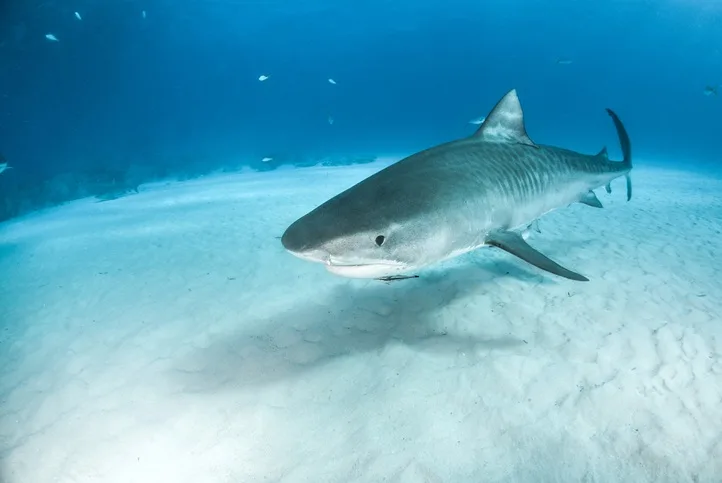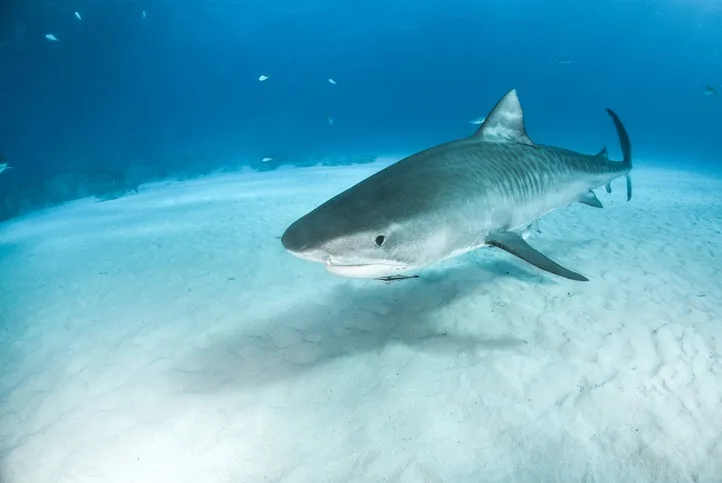
Major hurricanes can't scare this shark species, study says
While researchers found that some sizable sharks will leave shallow coastal habitats during a hurricane, tiger sharks seem undeterred amid the rough seas and fierce winds.
Hurricanes commonly force people from their homes when they're about to strike communities, but even the powerful storms can't push out some shark species from their coastal residences.
A recent study published in the Estuarine, Coastal and Shelf Science journal outlined the use of passive acoustic telemetry to examine the behaviour of large sharks at two locations hit by two hurricanes.
While researchers found that some sizable sharks will leave shallow coastal habitats during a hurricane, tiger sharks seem undeterred amid the rough seas and fierce winds.
SEE ALSO: Study finds overfishing has led to devastating global decline of sharks, rays
Researchers used tracking devices in two sites in the Atlantic -- Little Bahama Bank, Bahamas, and Biscayne Bay, Fla., -- to monitor shark activity in relation to two major hurricanes that were both Category 5 in strength.

(Getty Images)
In 2016, Category 5 Hurricane Matthew slammed into the northwestern corner of Little Bahama Bank, Bahamas. Even though there was a direct hit, the occupancy of tiger sharks in the area was “consistent before and during the hurricane," the study said.
"Immediately following the storm, daily tiger shark detections approximately doubled. [The] size and extent of tiger shark activity space within the array were consistent pre- and post-storm," the authors of the review added.
RESULTS DIFFERENT FOR OTHER SHARKS
The review looked at the spatial distributions, activity spaces, and ecological change-points of four large shark species of certain sizes.
However, the outcome was rather different for bull, nurse and great hammerhead sharks that inhabited an area near Biscayne Bay, Fla., during Hurricane Irma -- a Category 5 storm with winds of 297 km/h, which hit in 2017.
Once the eye of the storm passed 140 km to the west, most sharks that were previously present around the detectors were no longer discovered. However, two nurse sharks were still in the vicinity of the receivers near Miami, Fla.
Contrary to the findings of the smaller shark species, which were previously found to have vacated shallow-water habitats during storms, the research highlighted the changeable responses of large sharks to storm events.
Through the ecological change-point analysis, it was noted in the study that seasonal changes can’t be ruled out as the main driver of post-storm shark behaviour, rather than the storm conditions.
"Although aquatic animals can be affected by acute natural disturbances, information on the immediate consequences of these weather systems on the behavioural ecology of highly mobile aquatic predators remains limited," researchers said.
Thumbnail courtesy of Getty Images.
Nathan Howes can be followed on Twitter: @HowesNathan.











